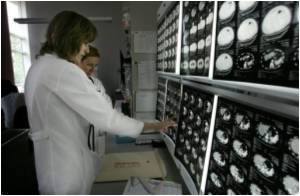An annual meeting of the American Society of Clinical Oncology (ASCO) this weekend in Chicago is expected to confirm a growing role of targeted and personalized therapies used to fight cancer.

"Now what is really exciting is to find new drugs that target those abnormalities, and so in almost every session of the meeting ... there will be presentations of these targeted therapies," Doctor Schuchter told AFP.
She said that many of these abnormalities could be targeted with drugs that produce far fewer side effects than traditional chemotherapy.
"So I think it will prove to be more effective and less toxic, which is fantastic," Schuchter pointed out.
She said one of the big research papers to be presented at the meeting is looking at an ALK inhibitor in patients with lung cancer.
The therapy boosts the immune system in the body in order to fight the cancer more efficiently.
Advertisement
"This drug takes the brake off and allows for further immunological response, and this is going to be the first time that a trial with patients with advanced melanoma show a survival benefit," Schuchter said.
Advertisement
Clinical trials with Avastin, a drug that aims to block cancer tumors from feeding themselves by developing their own blood vessels has produced encouraging results in treating ovarian cancer, Schuchter pointed out.
"The theme of the meeting is advancing quality through innovation, and I think it's a really good description because we really want to improve the quality of life of the patients with fewer side effects, and some of these new approaches are really accomplished that," Schuchter said.
Doctor Douglas Blayney, President of ASCO, said scientists were now developing more personalized approaches to treating patients of all ages with all types of all cancer and were identifying new ways to help patients live long, healthy lives following treatment.
"These studies show that investment in cancer research pays off," Blayney concluded.
Doctor George Sledge, an oncologist from the University of Indiana, said ASCO had called for doubling of funding for federally-supported clinical cancer research within the next five years.
"Clinical trials are essential to continue progress against cancer," he said. Yet the nation's federally funded clinical trial system is at a breaking point."
According to the World Health Organization, the number of people dying in the world from cancer could double by 2030 and reach 13 million.
The ASCO meeting brings together about 30,000 oncologists and representatives of pharmaceutical firms. Analysis of about 30 clinical trials and some 4,000 research papers were due to be presented.
Source-AFP














